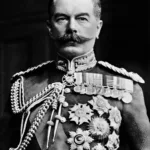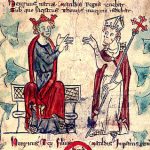Antonio de Oliveira Salazar was one of those Iberian dictators who stayed dictating for a long time. General Franco ruled Spain for nearly forty years, and General Salazar ruled Portugal for thirty-six years.
He was born in 1889 in a peasant family, conservative, devoutly Catholic and certainly reactionary if given the chance. He got his education at a seminary but decided against becoming a priest, perhaps because of his experiences at the seminary. The monks assuredly educated him however, for he became a lecturer at the Coimbra Universityin 1917 when he was twenty-eight years old. He never married and had no reputation as a lady-killer. Nor the opposite either, so he was probably asexual.
Under the military dictatorship of General Carmona (established in a bloodless coup in 1926) Salazar rose rapidly, partly because he was supposed to be a bit of a financial genius, becoming Minister of Finance in 1928, and Prime Minister in 1932.
He stayed in this post until 1968. He balanced the books according to his belief and methods, cutting expenditure radically and introducing new taxes. He obtained a budget surplus in his first year as PM. From then on he maintained it. Carmona meanwhile was content to remain a figurehead President until his death in 1931.
Salazar was a cold fish, distant, austere. He was not one of those senior politicians who believe that entering politics is a licence to print money ie. make personal fortunes using political powers. He said, “Parliamentary democracy results in instability and disorder. We) are anti-parliamentarians, anti-democrats, anti-liberals and we are determined to establish a corporate state”.
In the early 1930s he laid the foundations of an authoritarian regime which he could dominate as dictator until 1968. This regime was dedicated ‘to God, Country and the Family’. Salazar had enough brains not to try to mobilize mobs as was happening in the fascist regimes. Though he was personally self-effacing and outwardly modest, he was personally convinced that only he could plan Portugal’s destiny.
His Estado Novo required the suppression of trade unions, political parties and the right to strike, which is why he was soon known as an absolute dictator. The Constitution of 1933 established a National Assembly elected by universal suffrage, but meeting only 3 months per year. There was also a Corporative Chamber representing economic and professional corporations. This Chamber would advise the Government, which ruled by Decree anyway and much advice was ignored. National interests were to be given priority over sectional interests. Finally, the Government was not responsible to Parliament, but to the Head of State only. The Head of State was Salazar, who appointed all ministers. Salazar had his country by the boot strings.
He was backed by the industrial and financial oligarchy, the smallholding peasants in the North, and the huge estate owners in the South, as well as the civil servants who served in the bureacracy of the state. His presence and continuance as Dictator was also guaranteed by the Army and the Policía International de Defensa do Estado (the secret police with its enormous network of informers). Dissidents stood the chance kidnapping, torture and (not infrequently) murder.
How did he stay there so long? He deliberately cut any chance of potentially threatening social or economic change; all economic power was in the hands of a few fabulously rich families (10 families constituted 50% of the national wealth). Education was actually discouraged (though Salazar himself had risen through learning). In 1970 25.8% of the population over 10 years of age were illiterate and innumerate. The police state was maintained rigorously, there was a strict and precise balancing of the budget (woe betide any small official who tried to rob the state), high-ranking officers in the armed forces lived like pashas, and Salazar was expert at playing off the regime’s various interest groups against each other. He might have been a disaster, but he was a clever disaster.
He was Prime Minister (1932 – 68), Finance Minister (1928 – 48), Foreign Minister (1936 – 47), and War Minister (1936 – 44). When the terrible Spanish Civil War (q.v.) started, Salazar professed neutrality but this did not stop him sending troops to aid General Franco. He explained this by saying he feared a Republican success in the civil war would put Spain under the direct control of Soviet Russia. He was undoubtedly right, as Spanish Republican leaders had tried to sell Spain to the Soviets and given all Spain’s gold reserves to Moscow (Spainnever got them back).
He kept Portugal neutral during the Second World War and Lisbon, the capital, became a hotbed of spies from bothy sides, Axis and Allies. He also permitted the Allies to use the Azores– Portuguese possessions in the Atlantic– as a base.
Antonio Salazar stayed in power until 1968, the year of the Paris streetfighting, when he was incapacitated by a stroke. The strong regime he established melted away like ice cream in the sun with the Portuguese Revolution of 1974.










Leave A Comment